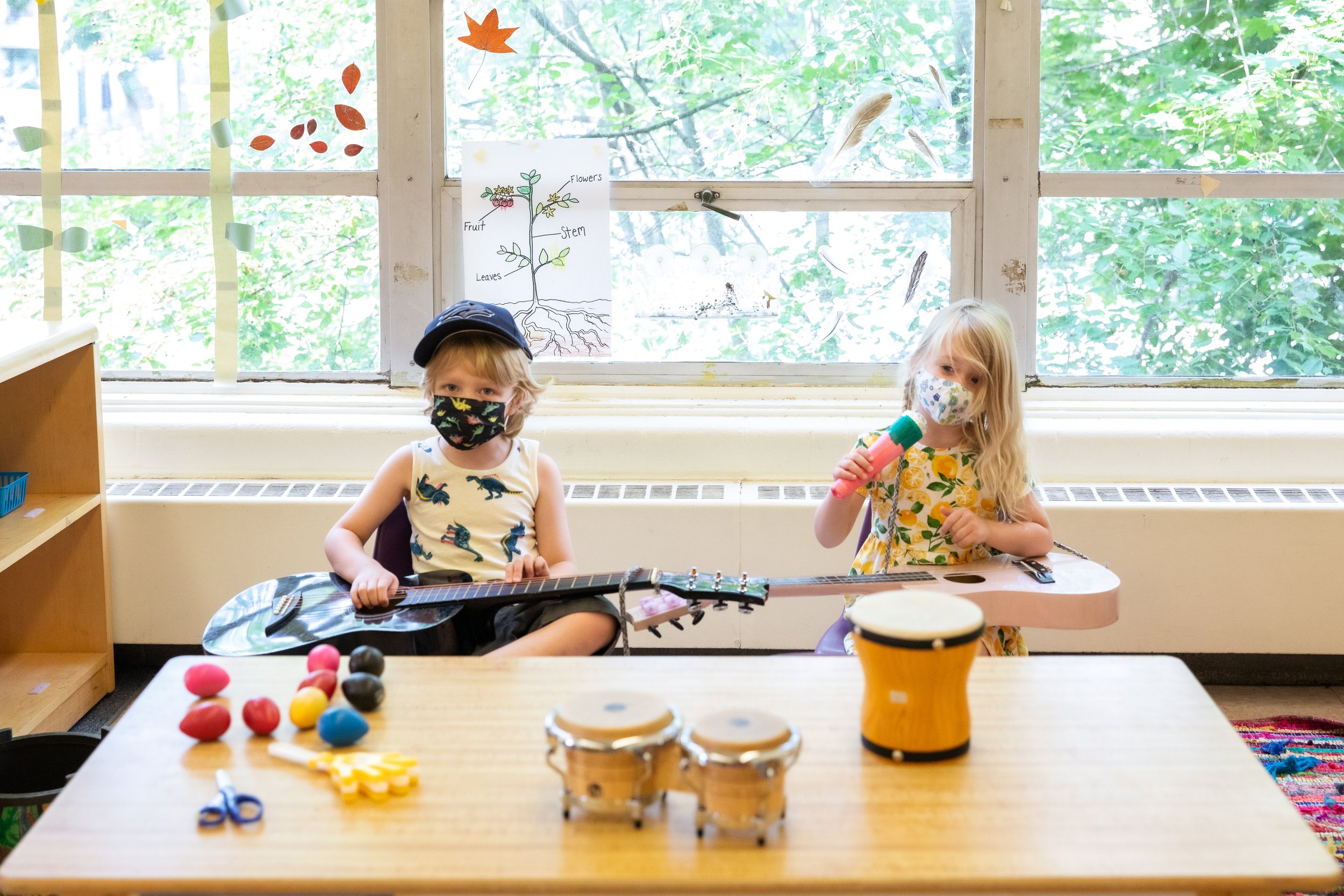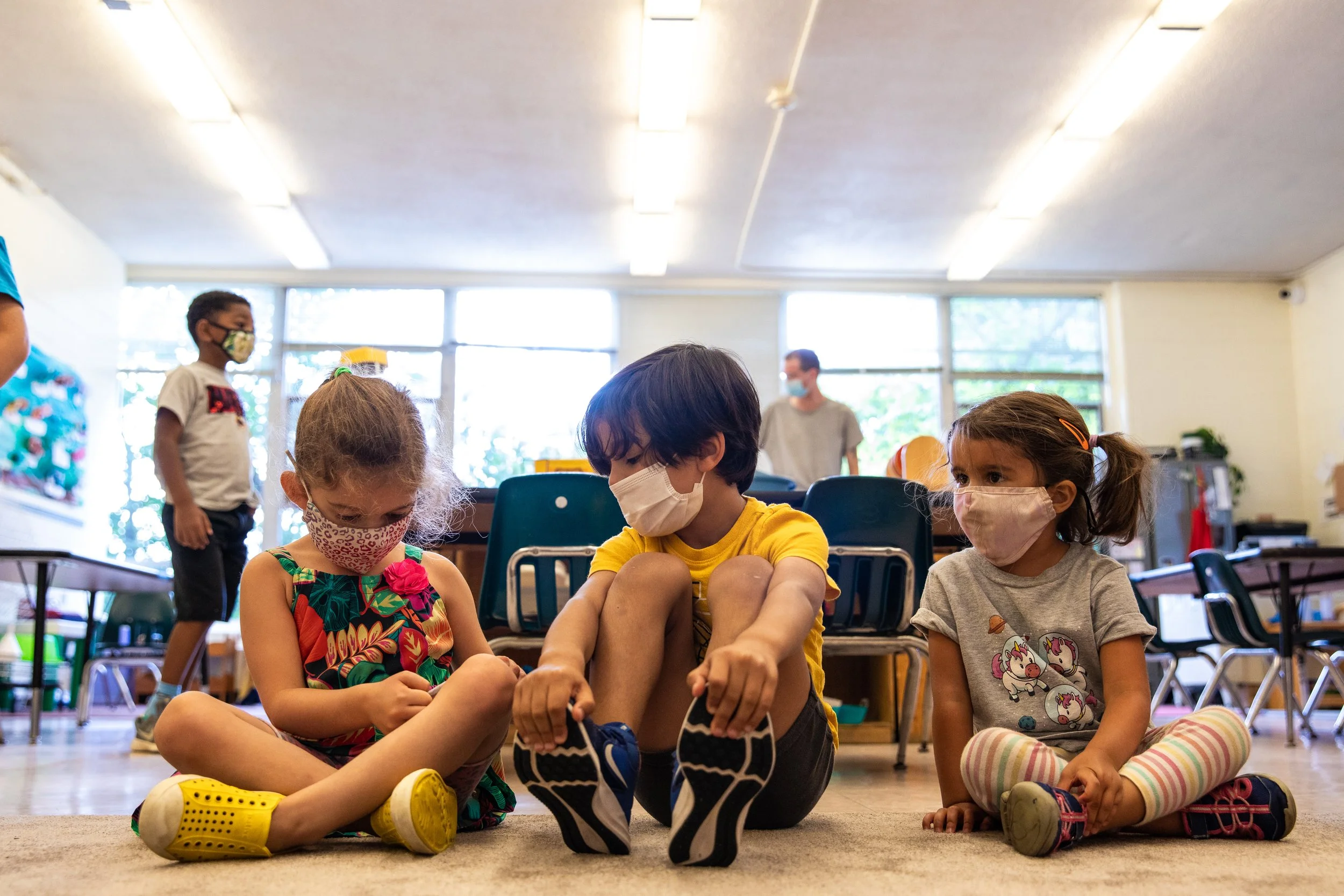
Who We Are
Our History
Brown Fox Point is located on the Brown University Campus. Our facility was originally built as Kilcup Hall in 1961. Brown purchased the building in 1969 when Bryant College moved from Providence to Smithfield, Rhode Island. Brown and the Fox Point Neighborhood Association created Brown Fox Point in 1973. We incorporated as an independent non-profit agency in 1979. Brown Fox Point was accredited by the National Association for the Education of Young Children (NAEYC) in 1996.
School and Facilities
Brown Fox Point has four mixed-age classrooms, all with large windows that provide loads of natural sunlight. Our teacher to student ratio is six to one. Read more about the interior setup of our classrooms on the Curriculum and Schedule page.
We follow Rhode Island Department of Health and U.S. Centers for Disease Control guidance in relation to COVID-19 monitor to stay and test to stay guidance. Read more about our COVID-19 Response policy.
Outside, Brown Fox Point has 10,000 square fee of naturalized play space that allows students develop their gross and fine motor skills, collaborate, work out conflicts and explore the world around them. In addition, the yard includes eight raised beds and a compost area, where students learn gardening basics. Blueberry and butterfly bushes and apple trees also line the yard.
Brown Fox Point children are also great travelers, walking to different area parks, work places, and sights.







Parents as Partners
Brown Fox Point Early Childhood Education Center has an “open door” policy. Parents are welcome in the school at any time, and we encourage you to be active participants in the classroom. Feel free to drop by during the day—you can come and have lunch with your child, or come during any break in your schedule
Each classroom has a parent bulletin board where you will find information about the daily schedule of activities and other items that will help you be more informed of your child’s experience here. Newsletters and other correspondence from the administrative staff will be placed in your child’s cubby or emailed to you on a regular basis. Parents are encouraged to participate in the class and to give feedback to the staff. If at any time a problem arises that you cannot solve with the teaching staff, please schedule an appointment with the Executive Director.
Parents are encouraged to become involved in the program in a variety of ways. Our classrooms are open environments where parents are invited to participate. The Brown Fox Point Family Association provides opportunities for families to get together for social events and other activities that help to support the Center. We host evening workshops for parents and caretakers on a variety of child-rearing topics, and our library of books and videos is a resource that is available to all of our families.

Family and Teacher Communication
Each classroom has a family bulletin board, on which you will find information about the daily schedule of activities and other items that will help you be more informed of your child's experience here. Correspondence from the administrative staff will be placed in your child's cubby or emailed to you on a regular basis. Finally, we have an active Facebook page that provides photographs, information and updates on school holidays, closings and events.
Our guiding principles in parent-teacher interaction are mutual respect, transparency, courtesy and recognition of the importance of both parents and teachers to the child’s successful school experience. Our goal is to develop a relationship of trust with all families. However, despite all efforts to ensure clear communication, misunderstandings may develop between you and your child's teachers.
Under these circumstances, we encourage you to set up a meeting so that you can speak directly to the teachers to express your concerns. (Drop-off and pick-up are not good times for these conversations, as teachers have to oversee their classrooms.) In most cases, an open, respectful discussion produces a mutually agreeable resolution. If your concerns are not addressed adequately, you should meet privately with the Executive Director to discuss the issue. Often, the Executive Director will offer to facilitate a meeting between you and your child's teachers, with the goal of determining what each of us can to do address your concerns.

